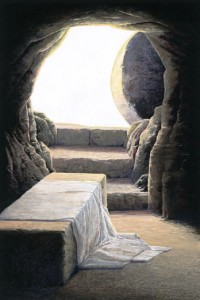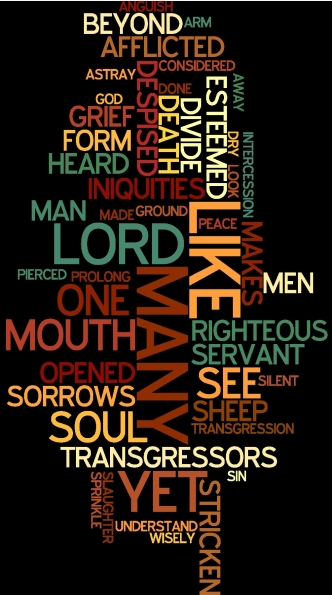 With Easter now almost a month past, I find myself reflecting on the church experience with memorizing Isaiah 52:13-52:12 (the “Suffering Servant”). On one level, I have no idea how many participated in learning these fifteen verses. We did not ask anyone to sign up. I was hopeful that many would work on it since it was a shorter passage than the Sermon on the Mount. Yet, the few folks I knew working on it were not able to completely memorize the passage. Maybe the flow of the ESV threw off some who tried; it did take some getting used to. Although I really enjoy using the ESV, maybe a different translation would benefit more people.
With Easter now almost a month past, I find myself reflecting on the church experience with memorizing Isaiah 52:13-52:12 (the “Suffering Servant”). On one level, I have no idea how many participated in learning these fifteen verses. We did not ask anyone to sign up. I was hopeful that many would work on it since it was a shorter passage than the Sermon on the Mount. Yet, the few folks I knew working on it were not able to completely memorize the passage. Maybe the flow of the ESV threw off some who tried; it did take some getting used to. Although I really enjoy using the ESV, maybe a different translation would benefit more people.
On another level, I am very grateful for our pastoral staff, David, Jud, and Billy, who had a hand in weaving the passage throughout the church life during the five weeks prior to Easter. We read the passages together aloud in church. We received emails with the passages to remind us about the church-wide memorization effort. We listened to parts of this “servant song” set to music. We studied all the “servant songs” on Wednesday nights. We used the words of Isaiah to frame our Maundy Thursday and Friday Tenebrae services. I was pleased and encouraged by all the staff did to make this relevant to the church, to bring this passage alive to everyone. It was beneficial to me personally as well. I was not merely learning and studying a passage from a dead prophet. I was seeing the crucified and resurrected Lord Jesus again, with fresh eyes, having witnessed the inner thoughts of the “Arm of the LORD” as revealed by Isaiah.
